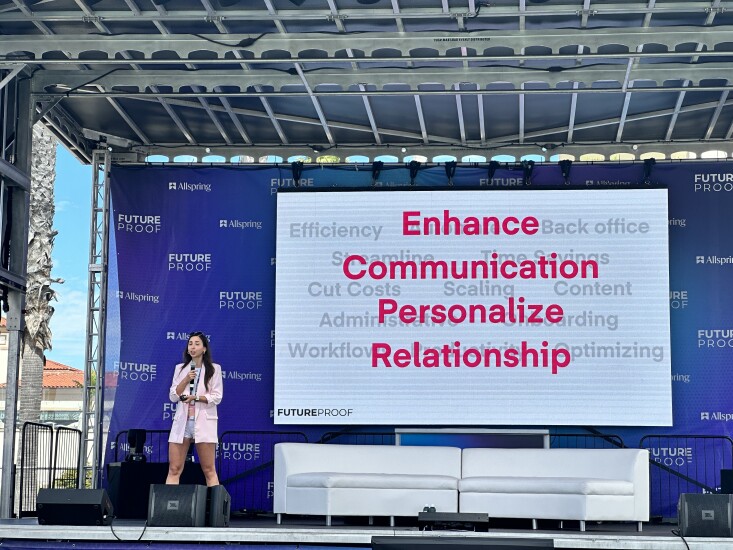As she took the Future Proof stage before an audience of advisors eager to make the most of the
She also doesn't have a strong financial services background, nor does she have any plans to become an advisor of any kind anytime soon.
But before the capacity crowd in front of her could politely pack up their laptops and head to another session at the second running of the unorthodox beachside wealth conference, the CEO and co-founder of fintech startup Caribou assured them all that she was qualified to be
That's because despite her firm's
At Future Proof 2023, Simone gave financial pros a quick crash course on practical ways to leverage generative AI in a way that goes beyond cranking out prospect emails or timed client correspondence.
Scroll down to check out the biggest takeaways from her talk in Surf City.







